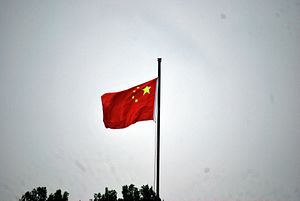Much has been written on the need for reform of China’s state-owned enterprises (SOEs). They play an important role in the Chinese economy, as they dominate China’s strategic sectors and pillar industries. They are also key instruments for the implementation of Chinese Communist Party (CCP) policies and strategic initiatives. But in terms of return on assets they are widely regarded as less profitable than privately owned companies.
In the past, substantial reforms to SOEs were consistently announced year after year. This movement toward SOE reform reached a high point in November 2013, when the Third Plenary Session of the 18th Central Committee adopted a comprehensive reform program that contained a key section on SOE reform.
But since then reform within this area has stalled and even gone backwards. Instead of being divided into smaller, mutually competitive companies, China’s large SOEs have experienced a process of consolidation that has created even bigger companies.
Xi Jinping’s recent report to the 19th Party Congress contains only a brief paragraph on SOE reform. The absence of directives from Xi on this front reinforces the impression that plans for further reform and liberalization have been shelved and replaced with a renewed focus on centralization and control in the hands of the CCP.
Following former Chinese premier Zhu Rongji’s period of SOE reform from 1997–98, many of China’s large SOEs grew into huge enterprises with significant economic and political clout. The executive elite in charge of these enterprises had vice ministerial status and often outranked the state administrative organs and bureaus that were supposed to regulate them. The considerable autonomy of these SOEs has contributed to an increasingly fragmented political–economic order in China.
The SOEs’ growing role and influence in overseas markets has also contributed to fragmented policymaking. Studies of Chinese oil companies show that, on occasion, they pursued policies that were not in alignment with the Chinese state. In Sudan, the Chinese Ministry of Commerce had to issue regulations limiting the activities of the China National Petroleum Corporation in order to better promote China’s image as a “responsible stakeholder.”
There have always existed forces of integration moderating the trend toward SOE fragmentation. The most important of these is the CCP’s control of Chinese SOEs.
The Party controls SOEs in various ways. All enterprises must have a Party organization headed by a Party secretary. Recent Party documents stipulate that all important decisions must first be studied and discussed by the Party committee of the enterprise. Only after that committee has forwarded a recommendation can the matter be decided by the board and an action implemented. This ensures that the CCP has a decisive say on enterprise operation and management.
In enterprises where a board has been established, the Party secretary and chairman of the board must be the same person. Members of the company’s Party committee should also serve on the board of directors, management team, and supervisory board.
This principle of overlapping positions and cross appointments has been at the center of recent discussions on enterprise management in Chinese media. The former chairman of the State Council’s State-Owned Assets Supervision and Administration Commission (SASAC), Li Rongrong, praised the cross-appointment system as an “effective measure to combine corporate governance with the Party, which is the political core of the company.”
Since 2015, cross-appointment has become a key concept in the Party’s management of state-owned businesses and government institutions. Former Chinese leader Deng Xiaoping’s policy of separating Party and government has been officially abandoned and the notion of separating government and business has also largely disappeared from public discourse.
The Party is especially keen on maintaining control over the SOEs managed by SASAC. They are the largest Chinese enterprises, accounting for most of the Chinese companies on the Fortune Global 500 list of the world’s largest companies. These SOEs — often called “national champions” — dominate the strategic sectors of the Chinese economy, such as aerospace, telecoms, power generation, automaking, and shipbuilding. The leaders of the 53 largest companies are not appointed by SASAC, but rather by the Party’s Organization Department. They are part of the Party’s nomenklatura system and are cadres ranked at vice ministerial level. This means many business executives are subject to cadre rotation and are moved to take up government or Party positions.
As an example, Zhang Guoqing served as general manager of China North Industries Group before being moved to Chongqing in 2013 to take up the position of vice mayor. Recently he replaced Huang Qifan as mayor and deputy Party secretary of Chongqing.
The nomenklatura system and cadre rotation are powerful instruments in the hands of the Party-state. The renewed emphasis on cross appointment and on the role of Party organizations in SOEs indicates that the CCP’s current policy is to strengthen rather than weaken its control over SOEs.
Xi Jinping’s report to the 19th Party Congress strongly emphasized the party’s ubiquitous presence in Chinese society and economy. So forces of integration and control — including the business-Party-government “iron triangle” — moderate a trend toward fragmentation of the Chinese polity, creating a uniquely hybrid form of integrated and centralized fragmentation.
Kjeld Erik Brødsgaard is a Professor of China Studies at the Department of International Economics and Management and Director of the China Policy Program at the Copenhagen Business School. This piece originally appeared over at East Asia Forum here and is republished with kind permission.

































